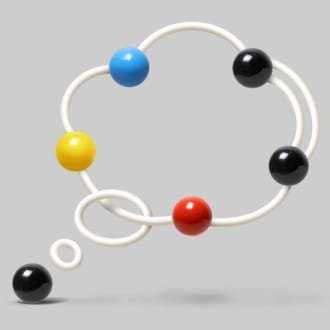The Best of The New York Times
20+ most popular The New York Times articles, as voted by our community.
New this Week
These are fresh off the press.
The Foreign Language That Changed My Teenage Son’s Life
I worried about his ability to fit in. But then he fell in love with Russian — and on a trip to Central Asia, he flourished.
Opinion | Some Words Feel Truer in Spanish
To me, a maleta meant family had arrived from Peru, carrying flavors, textures and memories of my birthplace.
Trending
These are currently making the rounds on Refind.
A.I. Is Learning What It Means to Be Alive
Given troves of data about genes and cells, A.I. models have made some surprising discoveries. What could they teach us someday?
The Hotel Guest Who Wouldn’t Leave
Mickey Barreto’s five-year stay cost him only $200.57. Now it might cost him his freedom.
The Spy War: How the C.I.A. Secretly Helps Ukraine Fight Putin
For more than a decade, the United States has nurtured a secret intelligence partnership with Ukraine that is now critical for both countries in countering Russia.
Sure, It Won an Oscar. But Is It Criterion?
How the Criterion Collection became the film world’s arbiter of taste.
The Designer Who Makes Movie Posters Worthy of Museums
You’ve seen Dawn Baillie’s posters for thrillers, comedies and dramas outside cineplexes. Now her work is being exhibited at Poster House in Manhattan.
The New York Times on China
Inside China’s Dystopian Dreams: A.I., Shame and Lots of Cameras
Beijing is putting billions of dollars behind facial recognition and other technologies to track and control its citizens.
In Urban China, Hardly Anyone Is Using Cash Anymore
Across the country's cities, the rapid growth of mobile payments is making cash all but obsolete.
The New York Times on Food
My Restaurant Was My Life for 20 Years. Does the World Need It Anymore?
Forced to shutter Prune, I’ve been revisiting my original dreams for it — and wondering if there will still be a place for it in the New York of the future.
Beyond Meat Is Struggling, and the Plant-Based Meat Industry Worries
A few years ago, business was booming. That growth has slowed, with some wondering if the number of consumers has reached its limit.
The New York Times on Health
Can Virtual Reality Help Ease Chronic Pain?
V.R. treatments may provide relief similar to intravenous opioids — a tantalizing prospect for the millions of Americans living with chronic pain.
11 Minutes of Exercise a Day May Help Counter the Effects of Sitting
The sweet spot for physical activity and longevity seemed to arrive at about 35 minutes a day of brisk walking or other moderate activities.
The New York Times on Housing
America’s Cities Are Unlivable. Blame Wealthy Liberals.
The demise of a California housing measure shows how progressives abandon progressive values in their own backyards.
A Landlord ‘Underestimated’ His Tenants. Now They Could Own the Building.
When a new landlord bought their building in the Bronx and threatened to raise rents and kick them out, tenants banded together. They never expected how far they might get: the chance to buy their…
The New York Times on Immigration
Making President Trump’s Bed: A Housekeeper Without Papers
At the president’s New Jersey golf course, an undocumented immigrant has worked as a maid since 2013. She said she never imagined she “would see such important people close up.”
Why a Banking Heiress Spent Her Fortune on Keeping Immigrants Out
Newly unearthed documents reveal how an environmental-minded socialite became an ardent nativist whose money helped sow the seeds of the Trump anti-immigration agenda.
The New York Times on Politics
The American Abyss
A historian of fascism and political atrocity on Trump, the mob and what comes next
The New York Times on Running
It’s Marathon Training Season. Here’s How to Build a Foundation.
The first few weeks should focus on the basics — easy pace, weight training and setting your expectations.
How I Tricked Myself Into Liking Running
It’s good for your mental and physical health, and doesn’t require any equipment. So why does it seem so hard to get started?
«Sports, in general, were not my thing. Running, less so.»
The New York Times on Trump
Trump Engaged in Suspect Tax Schemes as He Reaped Riches From His Father
The president has long sold himself as a self-made billionaire, but a Times investigation found that he received at least $413 million in today’s dollars from his father’s real estate empire, much of it through tax dodges in the 1990s.
‘Covid, Covid, Covid’: In Trump’s Final Chapter, a Failure to Rise to the Moment
As the U.S. confronted a new wave of infection and death through the summer and fall, the president’s approach to the pandemic came down to a single question: What would it mean for him?
The New York Times on TV
The 25 Best Films of the 21st Century So Far.
A.O. Scott and Manohla Dargis rank the best films made since 2000.
Martin Scorsese: I Said Marvel Movies Aren’t Cinema. Let Me Explain.
Cinema is an art form that brings you the unexpected. In superhero movies, nothing is at risk, a director says.
The New York Times on Women
Silicon Valley Women, in Cultural Shift, Frankly Describe Sexual Harassment
More than two dozen women in the tech start-up industry spoke to The New York Times about being sexually harassed by investors and mentors.
The Secret History of Women in Coding
Computer programming once had much better gender balance than it does today. What went wrong?
Popular
These are some all-time favorites with Refind users.
Stop Trying to Be Productive
The internet wants you to believe you aren’t doing enough with all that “extra time” you have now. But staying inside and attending to basic needs is plenty.
«“I’m trying to be more OK with just being.”»
We Need to Talk About How Good A.I. Is Getting
We’re in a golden age of progress in artificial intelligence. It’s time to start taking its potential and risks seriously.
Billionaire No More: Patagonia Founder Gives Away the Company
Yvon Chouinard has forfeited ownership of the company he founded 49 years ago. The profits will now be used to fight climate change.
Some Surprising Good News: Bookstores Are Booming and Becoming More Diverse
More than 300 bookstores have opened in the past couple of years — a revival that is meeting a demand for “real recommendations from real people.”
What Google Learned From Its Quest to Build the Perfect Team
New research reveals surprising truths about why some work groups thrive and others falter.
«The researchers eventually concluded that what distinguished the ‘‘good’’ teams from the dysfunctional groups was how teammates treated one another.»
What is Refind?
Every day Refind picks the most relevant links from around the web for you. is one of more than 10k sources we monitor.
How does Refind curate?
It’s a mix of human and algorithmic curation, following a number of steps:
- We monitor 10k+ sources and 1k+ thought leaders on hundreds of topics—publications, blogs, news sites, newsletters, Substack, Medium, Twitter, etc.
- In addition, our users save links from around the web using our Save buttons and our extensions.
- Our algorithm processes 100k+ new links every day and uses external signals to find the most relevant ones, focusing on timeless pieces.
- Our community of active users gets the most relevant links every day, tailored to their interests. They provide feedback via implicit and explicit signals: open, read, listen, share, mark as read, read later, «More/less like this», etc.
- Our algorithm uses these internal signals to refine the selection.
- In addition, we have expert curators who manually curate niche topics.
The result: lists of the best and most useful articles on hundreds of topics.
How does Refind detect «timeless» pieces?
We focus on pieces with long shelf-lives—not news. We determine «timelessness» via a number of metrics, for example, the consumption pattern of links over time.
How many sources does Refind monitor?
We monitor 10k+ content sources on hundreds of topics—publications, blogs, news sites, newsletters, Substack, Medium, Twitter, etc.
Can I submit a link?
Indirectly, by using Refind and saving links from outside (e.g., via our extensions).
How can I report a problem?
When you’re logged-in, you can flag any link via the «More» (...) menu. You can also report problems via email to hello@refind.com
Who uses Refind?
450k+ smart people start their day with Refind. To learn something new. To get inspired. To move forward. Our apps have a 4.9/5 rating.
Is Refind free?
Yes, it’s free!
How can I sign up?
Head over to our homepage and sign up by email or with your Twitter or Google account.































